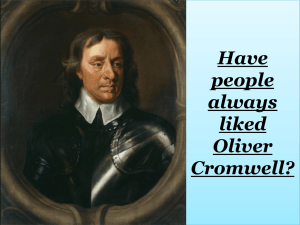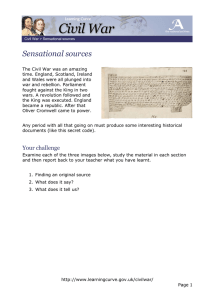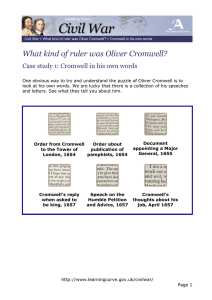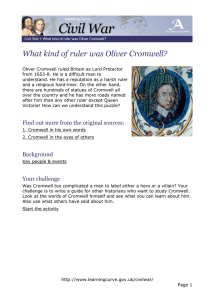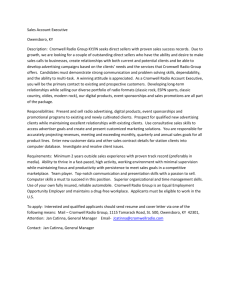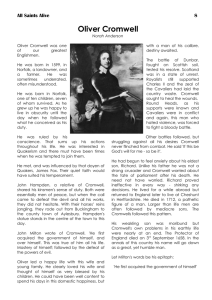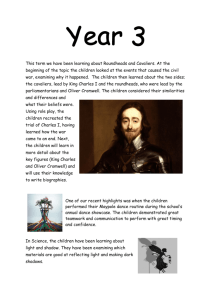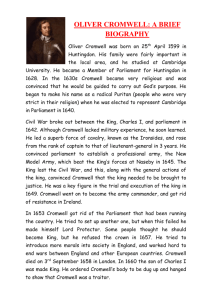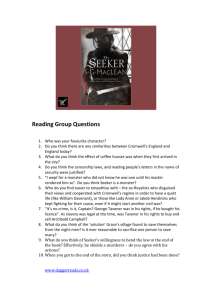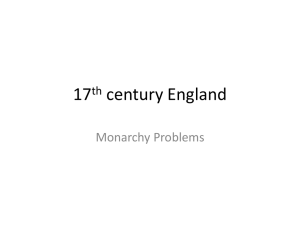What kind of ruler was Oliver Cromwell? Activity Part 1
advertisement
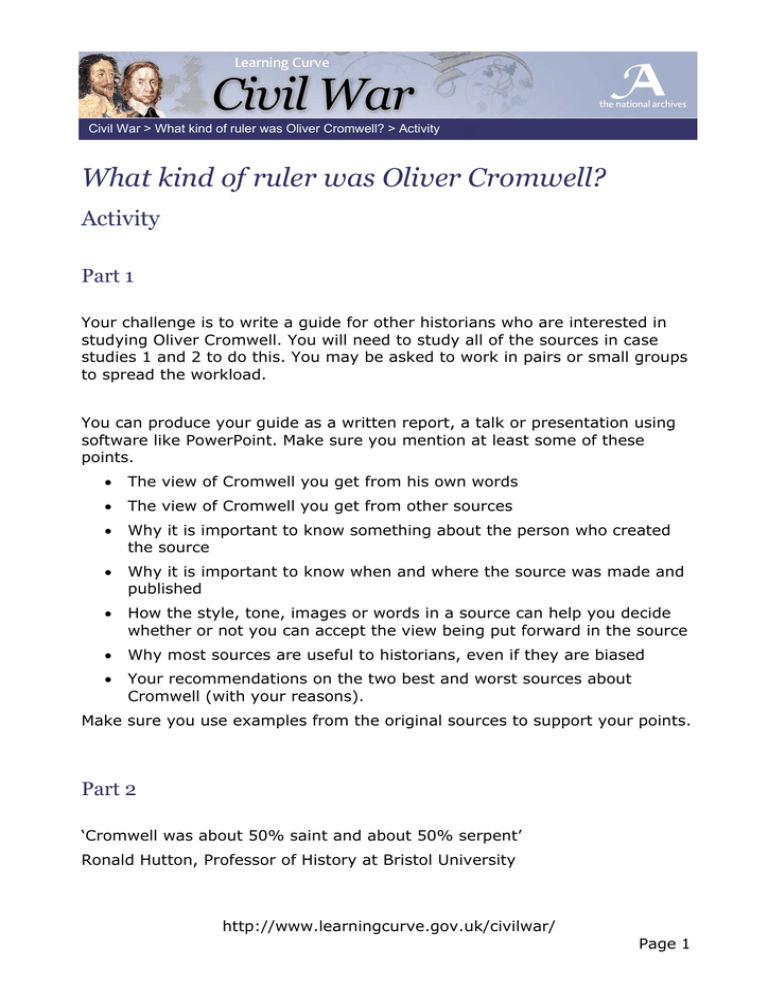
Civil War > What kind of ruler was Oliver Cromwell? > Activity What kind of ruler was Oliver Cromwell? Activity Part 1 Your challenge is to write a guide for other historians who are interested in studying Oliver Cromwell. You will need to study all of the sources in case studies 1 and 2 to do this. You may be asked to work in pairs or small groups to spread the workload. You can produce your guide as a written report, a talk or presentation using software like PowerPoint. Make sure you mention at least some of these points. • The view of Cromwell you get from his own words • The view of Cromwell you get from other sources • Why it is important to know something about the person who created the source • Why it is important to know when and where the source was made and published • How the style, tone, images or words in a source can help you decide whether or not you can accept the view being put forward in the source • Why most sources are useful to historians, even if they are biased • Your recommendations on the two best and worst sources about Cromwell (with your reasons). Make sure you use examples from the original sources to support your points. Part 2 ‘Cromwell was about 50% saint and about 50% serpent’ Ronald Hutton, Professor of History at Bristol University http://www.learningcurve.gov.uk/civilwar/ Page 1 Civil War > What kind of ruler was Oliver Cromwell? > Activity ‘Cromwell was committed to a wide measure of religious liberty - there was a state church under Cromwell, but no-one was forced to attend it, and almost everyone, Catholics and Jews included, was allowed to worship privately. Cromwell wanted to build a godly society, and he rode roughshod over those who got in his way - raising taxation without consent, and imprisoning without trial those he believed to be planning subversion of his regime.’ John Morrill, Professor of History at the University of Cambridge ‘Cromwell’s Protectorate was marked by an unusual degree of religious toleration, though only of Protestant groups. It provided firm and impartial government … It continued the high military expenditure which was a legacy of the civil war, to provide security for the regime.’ Barry Coward, Professor of History at Birkbeck College, University of London 1. Now you have studied the sources on Cromwell, get into small groups and discuss the views of these historians. Decide which of the views is closest to your own personal view of Cromwell. 2. Do a whole class survey and see how many people in your class think each view is closest to their own. 3. Compare the results of your class with the results of the other classes in your year group. http://www.learningcurve.gov.uk/civilwar/ Page 2
